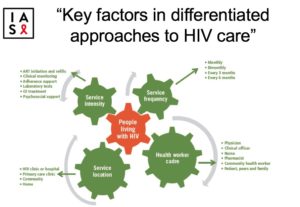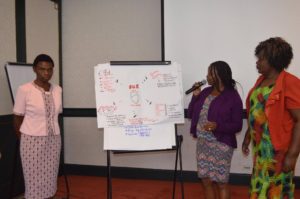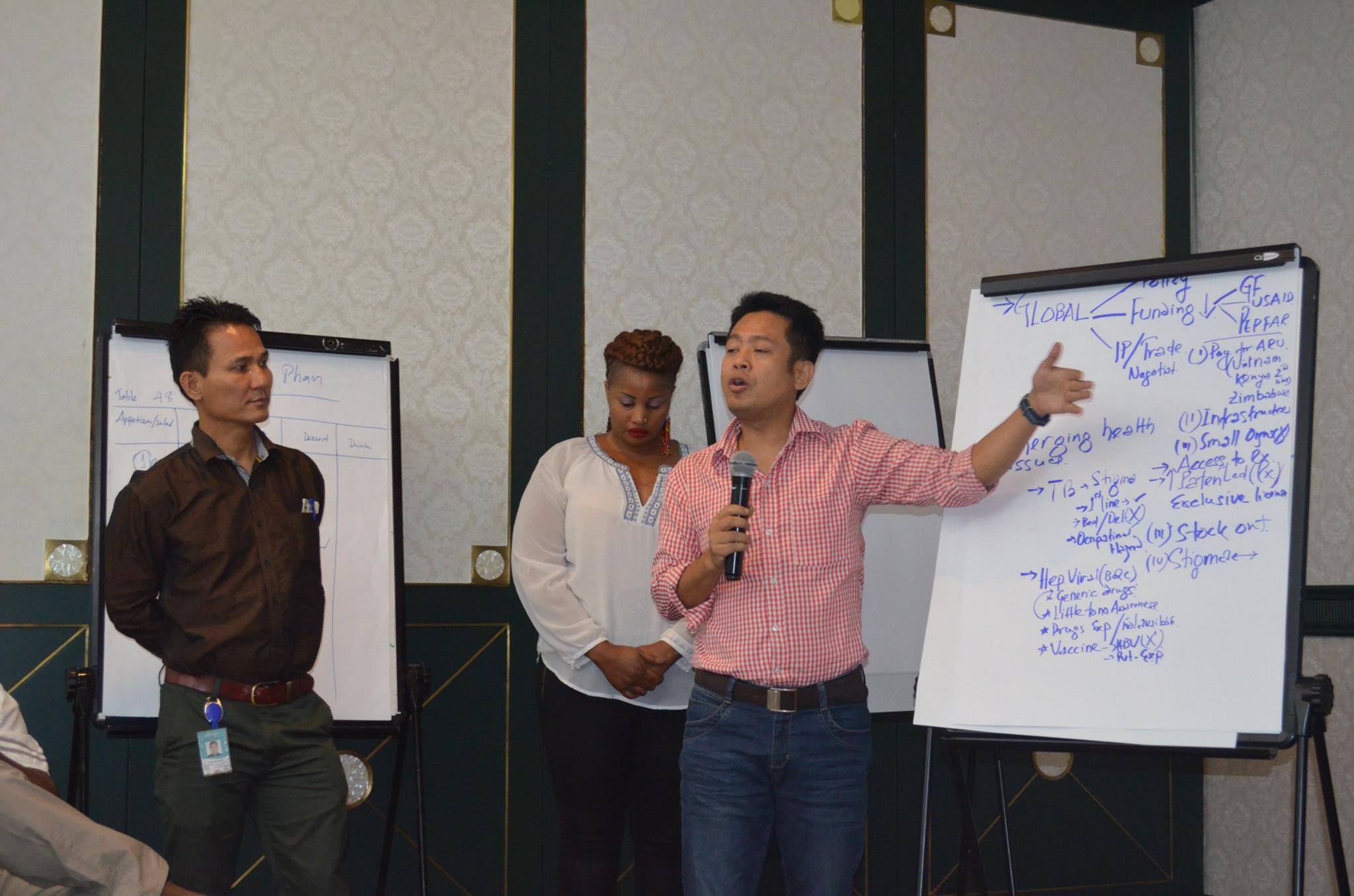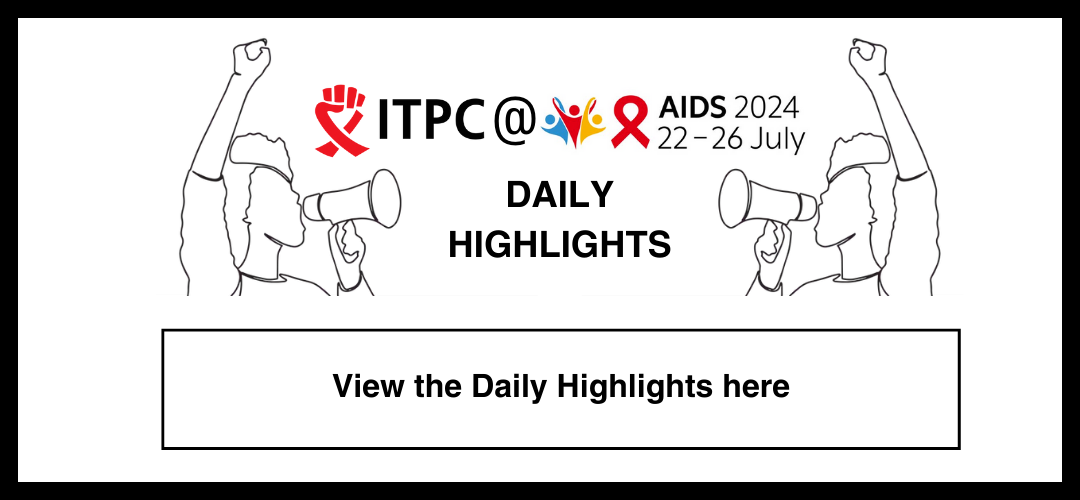On 19 – 23 June, 2017, ARASA and ITPC hosted a 5-day community workshop on differentiated ART delivery in Bangkok, Thailand. With the support of the International AIDS Society (IAS), the workshop brought together more than 30 participants across 12 countries from seven networks of people living with HIV in Africa and Asia to strengthen the capacity of networks of people living with HIV on and civil society organizations on antiretroviral (ART) delivery to foster regional and in-country advocacy and support for community-led demand creation.
The meeting covered discussions around demand creation; the link between differentiated models of  service delivery and human rights; how people living with HIV could meaningfully be involved in decision-making; the fundamentals of models of Differentiated ART Delivery; and the unpacking what advocacy for differentiated services may look like. Country groups also drew up Advocacy Plans for how they could create demand for Differentiated Models of ART Delivery, within their contexts, using existing resources and advocacy opportunities.
service delivery and human rights; how people living with HIV could meaningfully be involved in decision-making; the fundamentals of models of Differentiated ART Delivery; and the unpacking what advocacy for differentiated services may look like. Country groups also drew up Advocacy Plans for how they could create demand for Differentiated Models of ART Delivery, within their contexts, using existing resources and advocacy opportunities.
 Working group discussions highlighted that Differentiated Models of ART Delivery are critical to ensuring that people can access their antiretroviral treatment through a model that suits their daily activities while respecting their right to privacy and confidentiality. It was also emphasized that Differentiated Service Delivery is not about offering individualized care, but about allowing people to demand for services that make adherence easier and does not cost as much time and resources to access their life-saving medication.
Working group discussions highlighted that Differentiated Models of ART Delivery are critical to ensuring that people can access their antiretroviral treatment through a model that suits their daily activities while respecting their right to privacy and confidentiality. It was also emphasized that Differentiated Service Delivery is not about offering individualized care, but about allowing people to demand for services that make adherence easier and does not cost as much time and resources to access their life-saving medication.
“Some communities in my country need to walk 15-20km to pick up their ART once a month. I want to learn from other countries so that I can advocate for models of differentiated care!” – Activist from Kenya
This work builds upon research ARASA and ITPC conducted last year on the perspectives of PLHIV and health care works in 7 African countries.
ARASA and ITPC will now develop an activist guide, which will be launched by September 2017, to help communities better understand differentiated service delivery and its implementation at national level.

